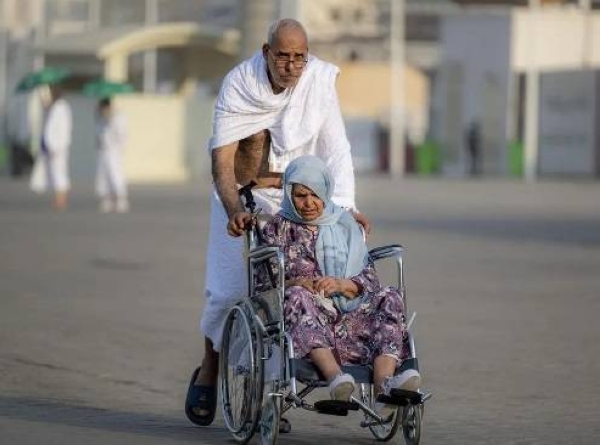In order to ensure a safe and enriching Hajj experience for all pilgrims, the Ministry of Hajj and Umrah in Saudi Arabia has expanded its services for elderly pilgrims and pilgrims with disabilities. With the full participation of both government and private entities, the ministry is prioritizing accessibility at the holy sites. Upgrades include buses with specialized equipment, clearly marked routes for stoning the Jamarat, and accessible pathways throughout the holy sites. Additionally, pilgrims with disabilities benefit from dedicated medical and health teams that accompany them throughout their journey, as well as a network of over 6,500 volunteers trained to assist them. These volunteers provide preferential entry and exit from the holy sites, priority boarding on buses, and general assistance to those in need.
The Authority of People with Disabilities is also working closely with other Hajj stakeholders to ensure accessibility for pilgrims with various needs. Services provided include sign language translation, electric wheelchairs, and copies of the Quran in Braille. The authority continuously monitors transportation, communication, healthcare, and Hajj campaigns to ensure accessibility and address any potential issues. By tracking pilgrims’ needs in Mina, Arafat, and Muzdalifah, they aim to further enhance services in the future for those with disabilities. This commitment to improving accessibility and tailored support showcases Saudi Arabia’s dedication to making Hajj a truly inclusive experience for pilgrims of all ages and abilities.
The Ministry of Hajj and Umrah’s support extends beyond the Hajj season, offering year-round programs specifically designed for first-time Umrah performers with newly acquired motor disabilities. These programs provide guided Umrah rituals and visits to significant landmarks in Makkah, providing enriching experiences for those with disabilities. These comprehensive measures highlight Saudi Arabia’s commitment to accessibility and ensuring a safe and fulfilling Hajj experience for older pilgrims and pilgrims with disabilities. By providing tailored support and services for those with various needs, the Kingdom is making strides towards making Hajj a truly inclusive and accessible experience for all pilgrims.
Under the guidance of the Saudi leadership, the Ministry of Hajj and Umrah has emphasized its dedication to serving all pilgrims and providing effective services for a smooth and enriching Hajj experience. Abdullah Al-Harbi, Director General of Social Responsibility and Voluntary Work at the ministry, highlighted the focus on providing the most effective services for elderly pilgrims and pilgrims with disabilities. With upgrades and accommodations at the holy sites, as well as dedicated medical and health teams and a network of volunteers, the ministry is ensuring that all pilgrims receive the support they need to have a successful and fulfilling Hajj experience.
Khalid Khabrani, spokesperson for the Authority of People with Disabilities, stated that the authority is committed to continuously improving its services and ensuring accessibility for pilgrims with various needs. Through collaboration with other Hajj stakeholders, a range of services are provided to assist pilgrims, including sign language translation, electric wheelchairs, and Braille copies of the Quran. By tracking transportation, communication, healthcare, and Hajj campaigns, the authority is able to address any issues and further enhance services for pilgrims with disabilities. This dedication to improvement and accessibility reflects Saudi Arabia’s commitment to inclusivity and ensuring a positive experience for all pilgrims, regardless of age or ability.











